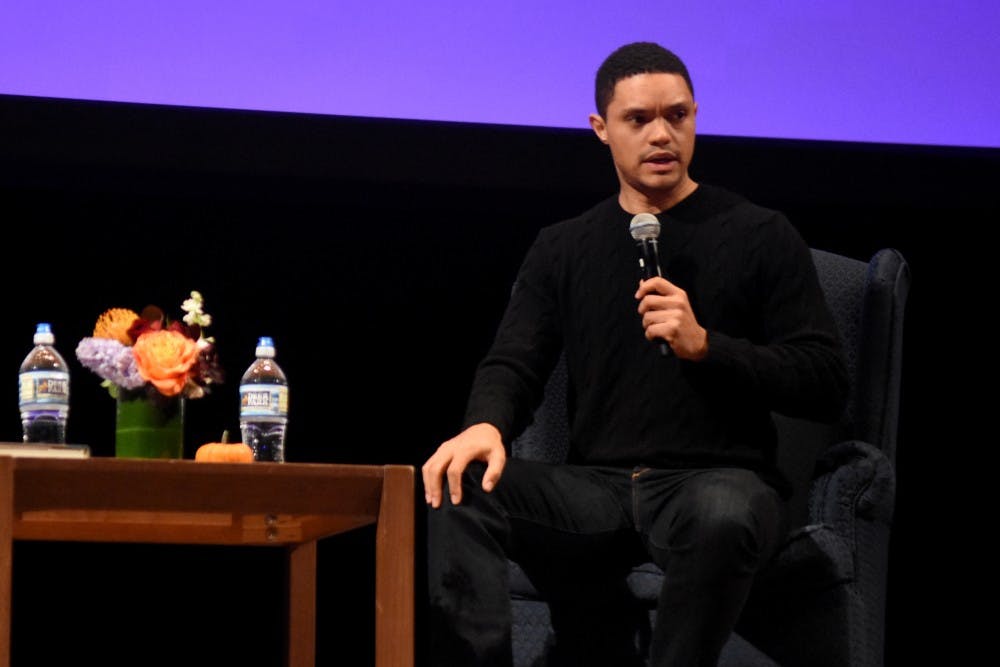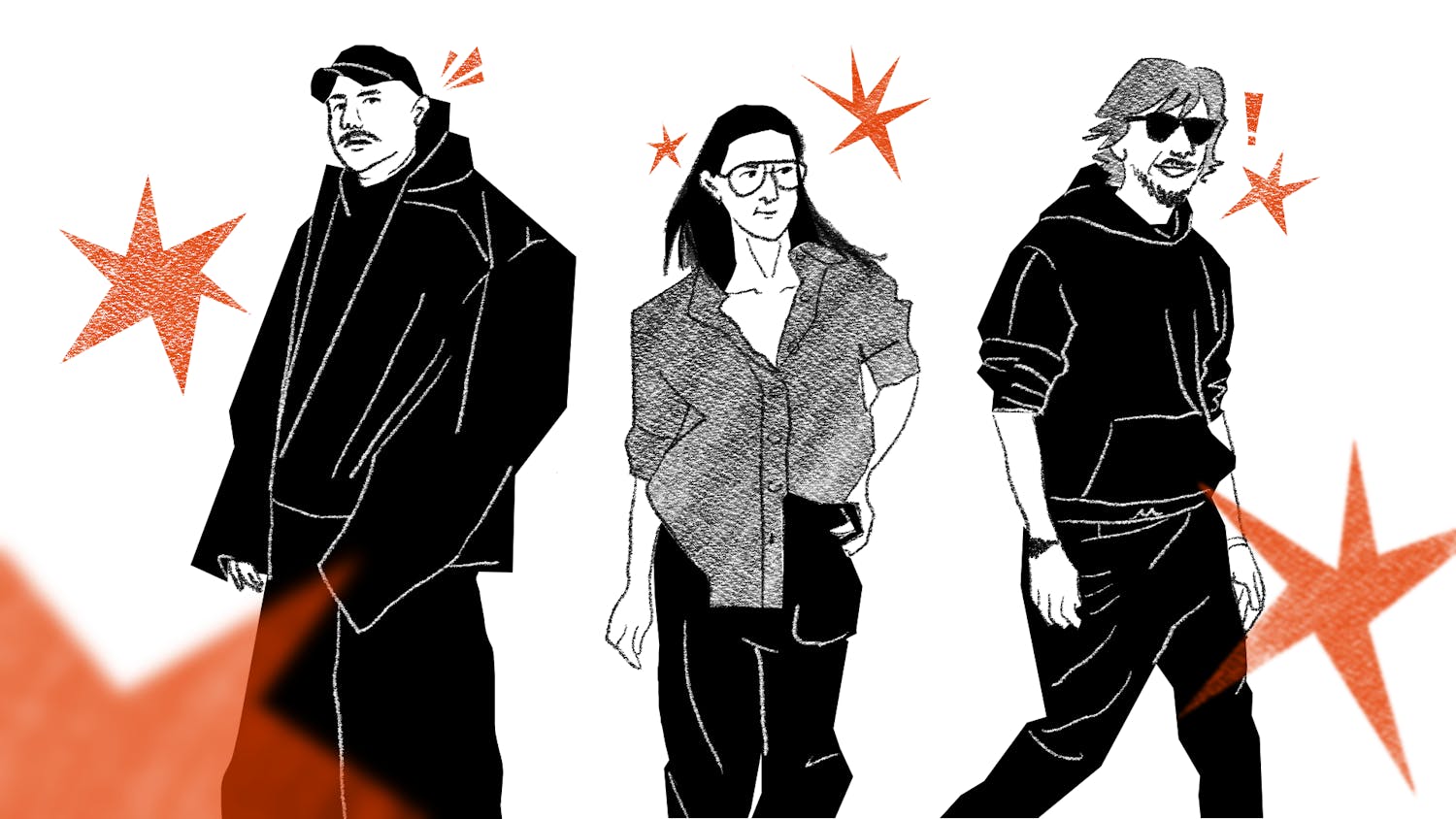Trevor Noah could have been a veterinarian. He could have gone into medicine. He could have pursued a number of different “tributaries,” he told a crowd crammed into Irvine Auditorium on Sunday, to achieve his goal of “making people feel better.” He just happened to end up hosting The Daily Show.
Two branches of the Social Planning and Events Committee—SPEC Connaissance, which is in charge of bringing influential speakers to Penn, and SPEC–TRUM, which represents undergraduate minorities—worked together to bring Noah to campus. Over the course of an hour, Mr. Noah and political science professor Mark Pollack perched upright in plush blue armchairs, trading jokes and anecdotes and Trump impressions. After SPEC organizers Dayzia Terry (C ’19) and Natasha Allen (C ’19) introduced Mr. Noah, the audience—many of whom had been waiting for over 45 minutes to see Mr. Noah speak, propping open their laptops in the wood auditorium seats—clapped in a frenzy. Mr. Noah smoothed his knees and shuffled his bleach–white sneakers. “It’s good to be here,” he said. The audience appeared to feel the same way.
Even the audience members who didn’t have an opportunity to ask Mr. Noah a question served as active participants in the discussion; they hooted and snapped, cheered and welped. “The black woman is oppressed more than anyone else in the world,” Mr. Noah said, after Professor Pollack asked a series of questions about the focus on Trevor’s mother in his 2016 autobiography Born a Crime. The audience sputtered with snapping fingers. “I am a product of a despicable time,” he said about growing up in apartheid South Africa. When he stated that apartheid and American systemic racism are “cut from the same cloth,” several members of the audience whooped. Later he spoke about how African–Americans use “code–switching” to fit into predominantly white spaces, and members of the audience shouted back to him: “YES!” someone called from the front rows. “Preach it!” someone screamed.
Much of Mr. Noah’s remarks centered on his mother and the role she played in shaping him. “I didn’t realize how much I loved her until I wrote the book,” he said. “She gave me an adult understanding of a world that I wasn’t privy to.” His relationship with his mother has shaped the way he views American politics; he said he sees a link between how Hillary Clinton’s campaign was perceived and how his mother has been treated throughout her life. “We don’t apply the same judgement and logic to a woman that we do to a man,” he said, to a cascade of cheers from the audience. “She doesn't get treated like any other politician,” he said about Secretary Clinton. “We live in a world where people feel threatened when a woman considers herself equal to a man.”
Professor Pollack tried to steer the conversation towards a more Penn–focused angle, explaining to Mr. Noah that juniors and seniors in the audience might feel anxious about their future. “Oh, there is no future,” Mr. Noah joked. “Have fun. We’re done.”
“I’m probably the least inspirational person you’ll ever meet,” he said. “Because I really believe in the force of luck….I spent less time trying to find my path than trying to excel at the path I was on.”
“So, no master plan to end up on The Daily Show?” Professor Pollack asked.
Mr. Noah shook his head, scooched forward in his seat. “My master plan has always been: be like water. It flows, it commands, it follows the path of least resistance.”
“If I had a master plan,” he said, “I wouldn’t be on The Daily Show.”







